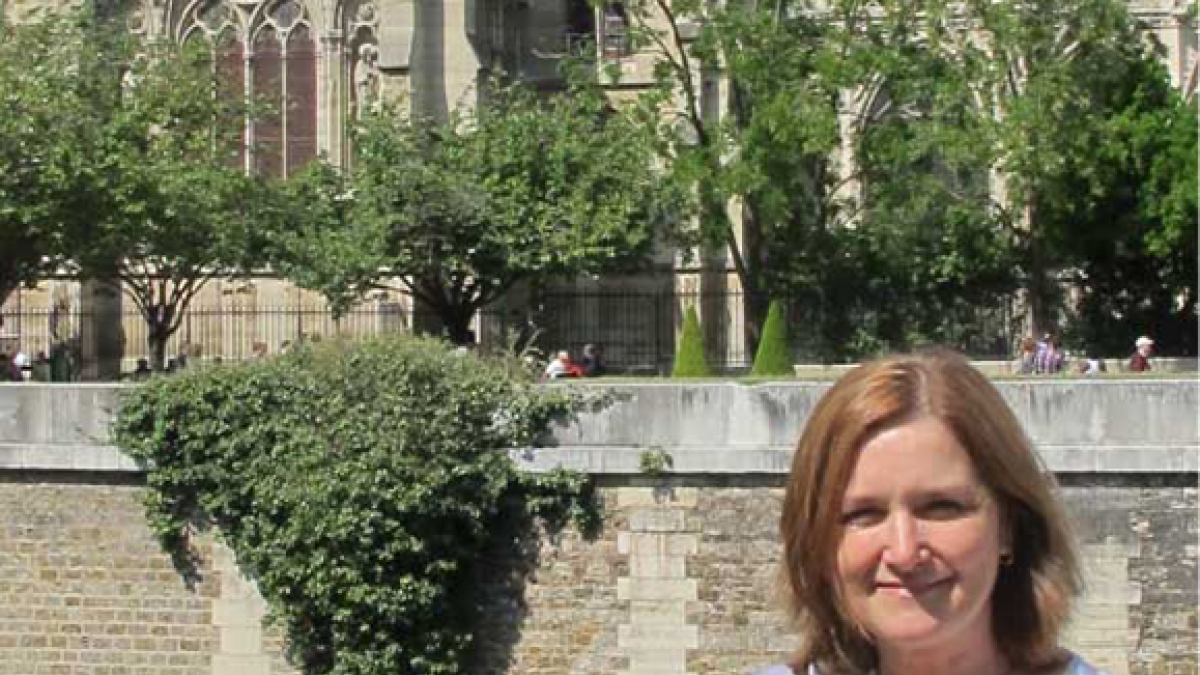ASU School of Music doctoral graduate wins prestigious dissertation award

Carolyn Rynex conducting research in France.
Carolyn Rose Rynex, Arizona State University School of Music alumna, was awarded the prestigious 2017 Julius Herford Dissertation Prize from the American Choral Directors Association for her doctoral terminal research project in choral music. The prize was one of two awarded and presented at the 2018 Western Regional Conference in March by Magen Solomon, chair of the Herford Prize Committee.
Rynex graduated from ASU in 2016 with a Doctor of Musical Arts degree in choral conducting. Prior to beginning her doctoral conducting program, she had a professional singing career.
Her dissertation, “Arabesque and the Early Music Influence in Debussy’s ‘Trois Chansons de Charles d’Orléans,’” takes an in-depth look at the music of Debussy, specifically “Trois Chansons,” and how it connects to the early music movement and chants in late 19th-century France.
“Working on and completing my dissertation was one of the most challenging things I have ever done,” said Rynex. “I learned that collaboration is a powerful tool, to take the advice others are willing to give with humility, and know that others are there who are willing and wanting to help you. Reach out to others, whether faculty, staff or students, who can help you if you are struggling. You don't have to do it alone.”
Rynex said her advisor, David Schildkret, ASU School of Music professor and director of choral activities, can be credited in large part for helping her get her dissertation to the highest level. She said he encouraged her to submit her document for the Herford Prize and has encouraged her to share her research at other conferences.
The prize is named after Julius Herford, who was a famous educator and Indiana University faculty member. He came to the U.S. as a concert pianist in the 1930s from Nazi Germany. Columbia University hired him to teach conductors, and he became an influential teacher to Robert Shaw, the renowned choral conductor who set the standard for conducting choral music.
“The parameters of the award are that the dissertation is pathbreaking work in choral music that is well-written and thoroughly researched and documented,” said Schildkret. “The association is giving her a high accolade and credibility to our School of Music doctoral program where she learned how to do what she did. She had some help on her project from myself and Catherine Saucier, associate professor of musicology and affiliate faculty in the Arizona Center for Medieval and Renaissance Studies, but she worked really hard on her project to learn how to do the research, present it and support it with documented evidence. She had a complicated journey, and to have that outcome is fabulous.”